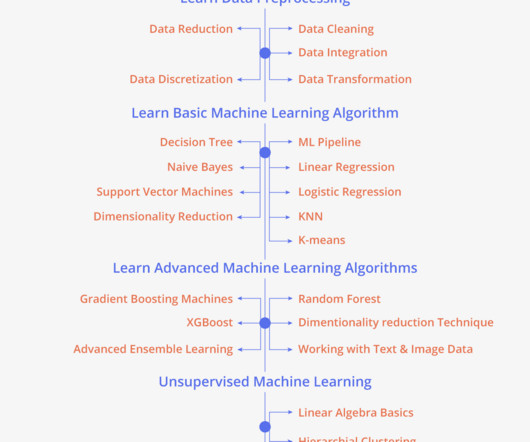Details About Data Architect Salary for 2023
Knowledge Hut
NOVEMBER 28, 2023
Along with the data science roles of a data analyst, data scientist, AI, and ML engineer, business analyst, etc, data architect is also one of the top roles in the data science field. Who is a Data Architect? Grab the top job positions in MNCs with this Data Science Course.












Let's personalize your content